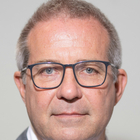Briefing Paper
How to shape development cooperation? The global partnership and the development cooperation forum
Janus, Heiner / Stephan Klingebiel / Timo Casjen MahnBriefing Paper (3/2014)
Bonn: German Development Institute / Deutsches Institut für Entwicklungspolitik (DIE)
2014 will be an important milestone for shaping the policy field of development cooperation in a post-2015 context. Two central events are taking place. The Global Partnership for Effective Development Cooperation(GPEDC) will convene for its first High-Level Meeting in April 2014 in Mexico City. The United Nations (UN) Development Cooperation Forum (DCF) will hold its biennial meeting in July 2014 in New York. How will thesetwo platforms shape development cooperation and its future governance architecture? Development cooperation, as a policy field dealing with the mobilisation of budgetary resources for the purpose of promoting development, is in a transition phase. For a long period, development cooperation has been closely linked to "aid", a concept developed by the Development Assistance Committee (DAC) of the Organization forEconomic Co-operation and Development (OECD). However, this system has increasingly come under pressure to adapt to a more differentiated global landscape characterised by newly emerging actors, new forms of cooperation and a growing awareness of global challenges such as climate change, financial regulation and security. The shifts in the policy field have given rise to competing global platforms for development cooperation and incentives for "forum shopping". Still, any global platform to manage development cooperation needs to provide a set of principles, norms, and mechanisms for knowledge exchange around which actors' expectations converge. In order to adequately fulfil this function, it will have to be legitimate, effective and relevant. Applying these criteria to the GPEDC and DCF, three models are possible: 1) Each platform for itself: This model describes a perpetuation of the status quo, characterised by a lackof cohesion between the GPEDC and the DCF. The continuation of parallel efforts on competing platforms will not sufficiently enable currentchallenges to be addressed. 2) Two platforms, different functions: Under this model, stakeholders in the GPEDC and the DCF agreeto clearly describe their functions in support of the overarching post-2015 agenda. This model wouldmark an improvement over the status quo; however, challenges in day to day coordination between bothplatforms would remain. 3) One platform for all: This model envisions a merger of both platforms to consolidate discussions aroundthe functioning of development cooperation. The platform would have universal membership and strong monitoring, evaluation and accountability mechanisms, combining the best features of DCF and GPEDC. It would draw on a clear UN mandate to manage development cooperation towards implementing the post-2015 agenda. Only such a common platform would be legitimate, effective and relevant at the same time.
Contact
Cornelia Hornschild
Publication Coordinator
E-mail Cornelia.Hornschild@idos-research.de
Phone +49 (0)228 94927-135
Fax +49 (0)228 94927-130
Alexandra Fante
Librarian/ Open Access Coordinator
E-Mail Alexandra.Fante@idos-research.de
Telefon +49 (0)228 94927-321
Fax +49 (0)228 94927-130




![[Translate to English:] Photo: Alexandra Fante, Bibliothekarin/Open Access-Koordinatorin](/fileadmin/_processed_/f/0/csm__c_Deutsches-Institut-fuer-Entwicklungspolitik_Fante_94ce4fa1ba.jpg)